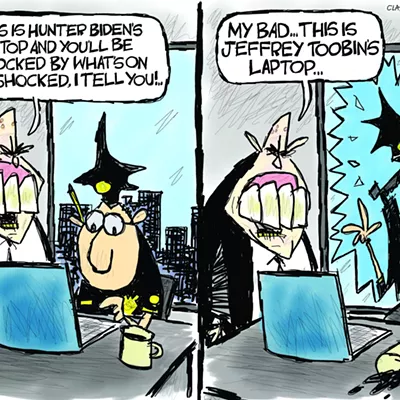Sen. Russell Pearce and Rep. John Kavanagh, who chair the Senate and House appropriations committees, unveiled a range of options that included cuts of up to nearly a billion dollars to K-12 education, $489 million to universities, $665 million to health-care programs and $310 million to welfare agencies.
The proposals reflect the state's dire economic straits as forecasters project a shortfall of $1.6 billion in the current fiscal year, and $3 billion in the next fiscal year, which begins July 1.
University of Arizona President Robert Shelton said the proposed university cuts would "cripple" higher education.
"The severity of the cuts proposed would only serve to prolong the recession, damage the economy further and threaten the state's future workforce," Shelton said. "The state needs to protect its universities, not dismantle them, if it has any hope for building an economy for the future."
Senate Appropriations Committee Vice Chair Al Melvin, a freshman Republican representing the Catalina foothills and Oro Valley, said his priorities included permanent cutbacks in state programs and the elimination of a $250 million property tax that was set to kick back in this year after a three-year suspension.
"From our point of view, there will be no new taxes," Melvin said. "There will be no borrowing. There will be cuts."
But not all Republicans were eager to sign on to such deep cuts to state spending. Sen. Jonathan Paton of District 30, which includes Tucson's eastside and Green Valley, said citizens could expect changes before the final budget package was assembled.
"The final budget that gets signed by the governor is going to look far different from the one that was proposed last week," Paton said.
Democratic reaction to the GOP proposal was swift, with party leaders orchestrating a press conference later that afternoon (Thursday, Jan. 15) to condemn the plan.
Rep. Steve Farley, who represents midtown Tucson, said he had anticipated that Republicans would cut education and health care, "but I don't think anyone expected the scale" of the GOP proposal.
Farley said the push by Republicans to permanently eliminate the state property tax in the face of declining revenues was "insane."
"It doesn't seem to matter to these people that it costs the average homeowner $7 a month," he said.
Farley added that he hoped Republicans would take a look at a proposal released by outgoing Gov. Janet Napolitano, who suggested lawmakers borrow against future lottery and tobacco-settlement proceeds, spend all but $10 million of the $130 million remaining in the rainy-day fund, transfer a variety of funds, suspend various programs and hope for a boost from a federal stimulus package.
But he conceded there were problems with the Democratic plan, including the move to borrow against future lottery proceeds.
"Clearly, no one wants to be doing as much borrowing as is in Napolitano's plan, but no one wants to be doing all the cutting that's in the Republican one, either," Farley said. "The bottom line is, there are good ideas everywhere, and we have to look at all of them, no matter what the source."
But with Napolitano resigning to become head of the Department of Homeland Security, and Republican Jan Brewer set to take the governor's seat this week, GOP lawmakers were generally dismissive of Napolitano's proposals.
"Napolitano's budget is just not going to happen," said Rep. Frank Antenori, a freshman Republican from District 30. "It's just more of the same. It's rosy financial projections on the one end, and more bonding and spending on the other."
Antenori said he would push to reduce cuts to K-12 education by half, but higher education could expect a major hit.
"I'm not thrilled with that K-12 hit, and we're going to work on getting that down this week," Antenori said. "I don't know that we're going to be able to do as much for the universities. I'd like to see prisons take a bigger hit."
Antenori added that the city's Rio Nuevo downtown-redevelopment dollars were also likely to be used to balance the budget.
"That's $10 million or $11 million a year that could go to education instead of consultants and pipe dreams and washed-up old theaters that they can't support," Antenori said. "It's a boondoggle. If it had been run better and managed better, and they'd focused money on the infrastructure and private investment, it would have been a different story."











